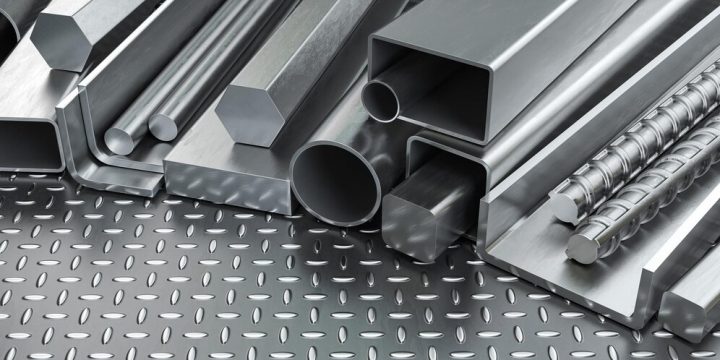Flanges are essential components in piping systems, offering a versatile and reliable method of connecting pipes, valves, pumps, and other equipment to form a functional network. These components are designed to ensure structural integrity, simplify maintenance, and enhance safety in various industrial systems. Manufactured from materials such as stainless steel, carbon steel, alloy steel, and other advanced alloys, flanges play a pivotal role in industries like oil and gas, petrochemicals, power generation, water treatment, and more.
India has become a global leader in the production of high-quality flanges, catering to the growing demands of diverse sectors worldwide. In this blog, we will explore the various types of flanges made in India, their applications, and factors to consider when choosing the right flange for your needs.
Types of Flanges and Their Applications
Flanges come in numerous types, each designed for specific applications. Choosing the correct flange type for a project is crucial to ensure the efficiency, safety, and durability of the piping system. Below are some of the most commonly used types of flanges manufactured in India:
1. Slip-On Flanges
Slip-on flanges are designed to easily slip over the pipe and are welded on both the inside and outside, ensuring a secure fit. They are a cost-effective solution and are simple to install.
Applications:
- Suitable for low-pressure systems.
- Commonly used in cooling water lines and firefighting systems.
Advantages:
- Cost-effective.
- Requires less accuracy in cutting pipe length.
2. Weld Neck Flanges
Weld neck flanges feature a long tapered hub that reinforces the flange, reducing stress at the base. This makes them ideal for high-pressure applications where structural integrity is critical.
Applications:
- High-pressure pipelines.
- Oil and gas refineries and high-temperature systems.
Advantages:
- High strength and durability.
- Minimizes turbulence and erosion due to smooth transition from flange to pipe.
3. Blind Flanges
Blind flanges are solid disks used to seal off a piping system or vessel opening. They do not have a bore and are used to isolate sections of a piping network for maintenance or modifications.
Applications:
- Isolation of piping systems during maintenance or inspection.
- Used at the end of pipelines.
Advantages:
- Provides a secure seal.
- Easy to remove for system modifications.
4. Socket Weld Flanges
Socket weld flanges feature a recessed area where the pipe is inserted and welded, providing a leak-proof connection. These flanges are commonly used in small-diameter, high-pressure piping systems.
Applications:
- Small-diameter, high-pressure piping systems.
- Chemical and hydraulic systems.
Advantages:
- Strong, reliable, and leak-resistant connection.
5. Threaded Flanges
Threaded flanges are screwed onto pipes, eliminating the need for welding. These flanges are ideal for low-pressure systems where welding is not feasible or practical.
Applications:
- Hazardous or explosive environments.
- Plumbing and water supply systems.
Advantages:
- Easy to install and remove.
- Suitable for systems where welding is undesirable.
6. Lap Joint Flanges
Lap joint flanges are paired with a stub end and allow for easy alignment and rotation. These flanges are not welded to the pipe but are held in place by pressure, making them ideal for systems that require frequent disassembly.
Applications:
- Systems requiring frequent disassembly and reassembly.
- Low-pressure and low-stress applications.
Advantages:
- Highly adaptable and easy to assemble and dismantle.
See Also Top Flanges Manufacturers in India: A Comprehensive Guide for Industry Professionals
7. Orifice Flanges
Orifice flanges are specifically designed for measuring the flow rate of liquids and gases in pipelines. These flanges come with a pair of pressure taps for connecting to differential pressure gauges, facilitating accurate flow measurement.
Applications:
- Flow measurement in chemical plants and power generation systems.
- Used in pipelines where accurate flow measurement is essential.
Advantages:
- Accurate flow measurement.
- Easy installation and maintenance.
8. Spectacle Blind Flanges
Spectacle blind flanges consist of two discs connected by a bar, one of which is solid (blind) and the other with a hole. These are used to isolate or open sections of a pipeline without removing the flange.
Applications:
- Pipeline maintenance and inspection.
- Used in chemical and petrochemical industries.
Advantages:
- Flexible and easy to use.
- Reduces downtime during maintenance.
9. Ring-Type Joint (RTJ) Flanges
RTJ flanges provide high-pressure seals by using a metal ring that deforms under pressure to create a leak-tight connection. These flanges are designed for critical applications requiring reliable sealing.
Applications:
- High-pressure systems in the oil and gas industry.
- High-temperature applications in refineries.
Advantages:
- Exceptional sealing capabilities under high pressure.
- Suitable for high-stress and critical environments.
10. Forged Flanges
Forged flanges are made from forged steel, offering superior strength and reliability. The forging process ensures that the flanges are tough and resistant to stress, making them ideal for high-stress environments.
Applications:
- Heavy-duty industrial systems such as power plants and oil refineries.
- High-pressure and high-temperature systems.
Advantages:
- Increased strength and toughness.
- Resistance to material failure under high-pressure conditions.
11. Van Stone Flanges
Van Stone flanges are designed for easy alignment during installation. These flanges have a raised face and are often used for temporary piping systems or low-pressure applications.
Applications:
- Temporary piping systems requiring quick assembly and disassembly.
- Low-pressure systems.
Advantages:
- Simplifies pipe alignment and installation.
- Ideal for systems requiring frequent changes.
12. Expanding Flanges
Expanding flanges are designed to connect pipes of different sizes. The flange expands from the smaller diameter to the larger one, reducing the need for additional adapters.
Applications:
- Systems where pipes of different sizes need to be connected.
- Used in water treatment plants and large-scale industrial applications.
Advantages:
- Flexible design for connecting different-sized pipes.
- Reduces the number of components required for installation.
Advanced Materials Used in Flange Manufacturing
In addition to carbon steel, stainless steel, and alloy steel, other specialized materials are used to manufacture high-performance flanges for specific applications:
- Alloy Steel Flanges: Ideal for high-pressure, high-temperature, and corrosive environments, often used in oil refineries and chemical plants.
- Monel Flanges: A nickel-copper alloy offering excellent resistance to corrosion, particularly in seawater and acidic conditions.
- Titanium Flanges: Known for their high strength-to-weight ratio and exceptional corrosion resistance, commonly used in aerospace and marine applications.
- Copper Nickel Flanges: Highly resistant to seawater and other corrosive environments, typically used in offshore oil rigs and marine systems.
Flange Manufacturing Process in India
The process of manufacturing high-quality flanges in India involves several stages:
- Material Selection: Raw materials such as carbon steel, stainless steel, and alloys are sourced and inspected for quality.
- Forging: Flanges are forged under high pressure and temperature to achieve the desired shape and strength.
- Machining: CNC machines are used to achieve precise dimensions and surface finishes.
- Heat Treatment: Heat treatment processes like annealing and quenching improve the mechanical properties of the flange.
- Inspection and Testing: Non-destructive testing (NDT) methods such as ultrasonic testing ensure that the flanges meet required quality standards.
Why Choose Indian Manufacturers?
India is increasingly seen as a top destination for sourcing flanges due to several advantages:
- Cost-Effectiveness: Indian manufacturers offer competitive pricing without compromising on quality.
- Advanced Technology: State-of-the-art machinery ensures precision and durability.
- Global Standards: Indian-made flanges meet international standards, making them suitable for global exports.
- Customization: Indian manufacturers offer tailored solutions to meet specific project requirements.
Conclusion: The Future of Flange Manufacturing in India
India’s flange manufacturing industry continues to evolve, leveraging advanced technology and material innovations. By choosing the right flange type and material, industries can ensure the efficiency, safety, and longevity of their piping systems. With a growing demand for high-quality flanges across various sectors, India remains a reliable partner for businesses worldwide.
Whether you are looking for standard or custom flanges, Indian manufacturers offer a diverse range of high-quality products suited for both small and large-scale projects. Platforms like EnggPro make it easy to find verified flange manufacturers that meet your specific needs, providing you with quality, cost-effective solutions for your industrial projects.



